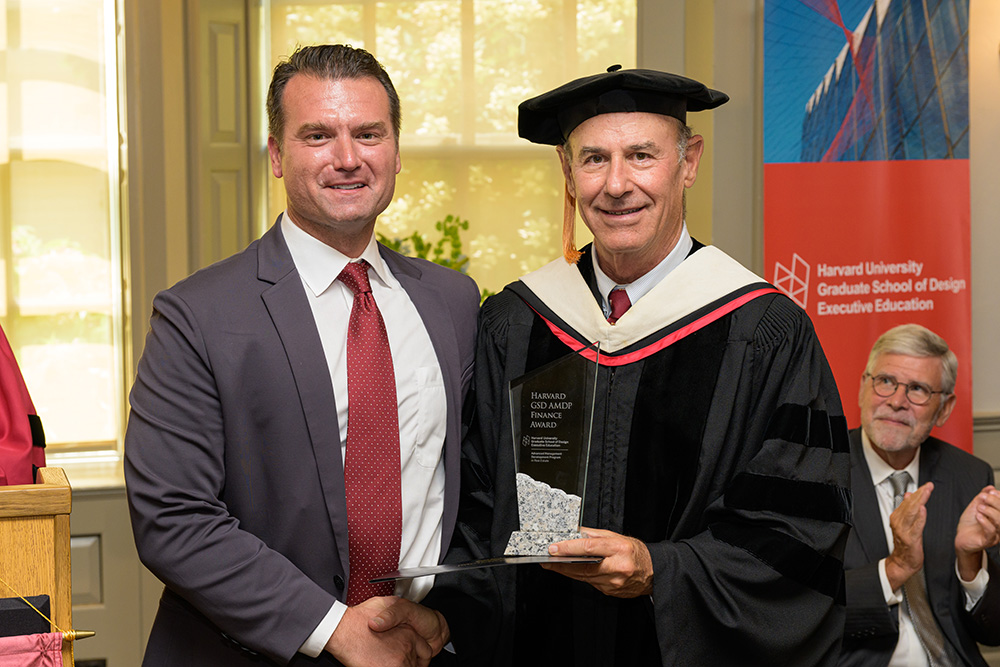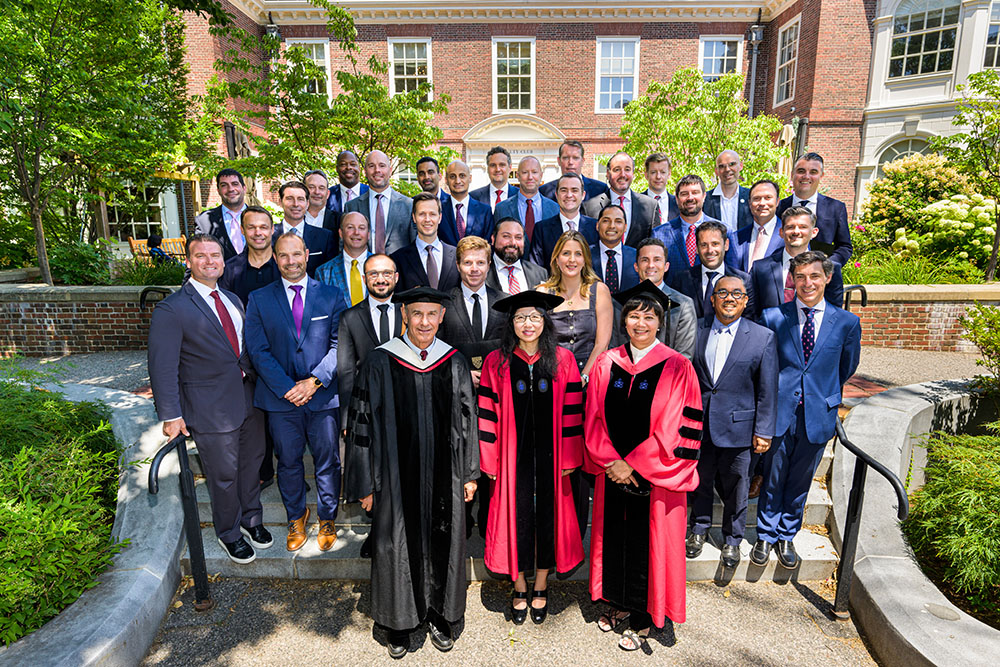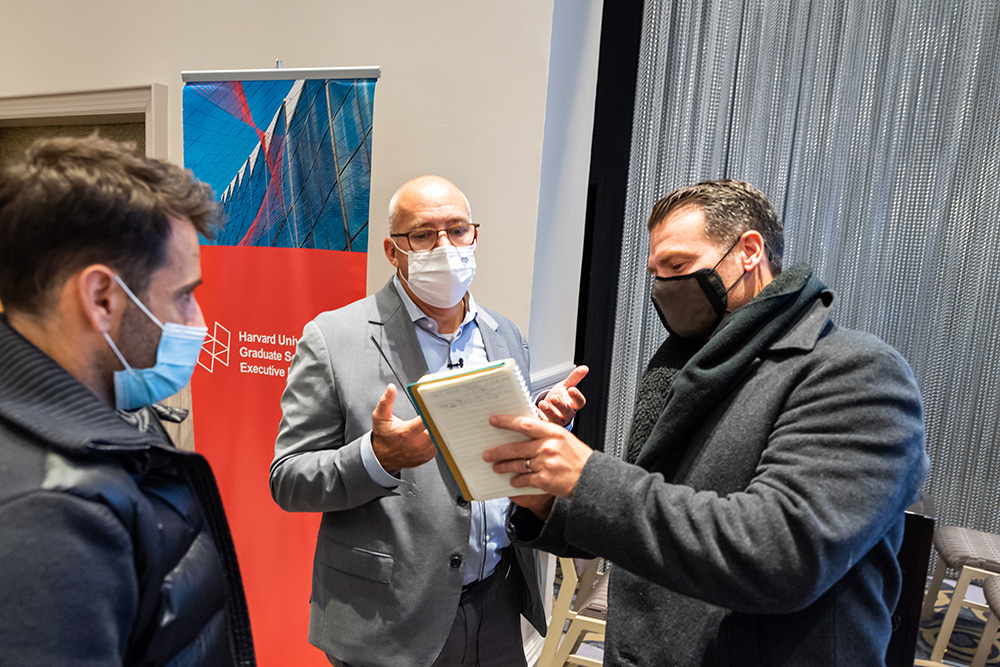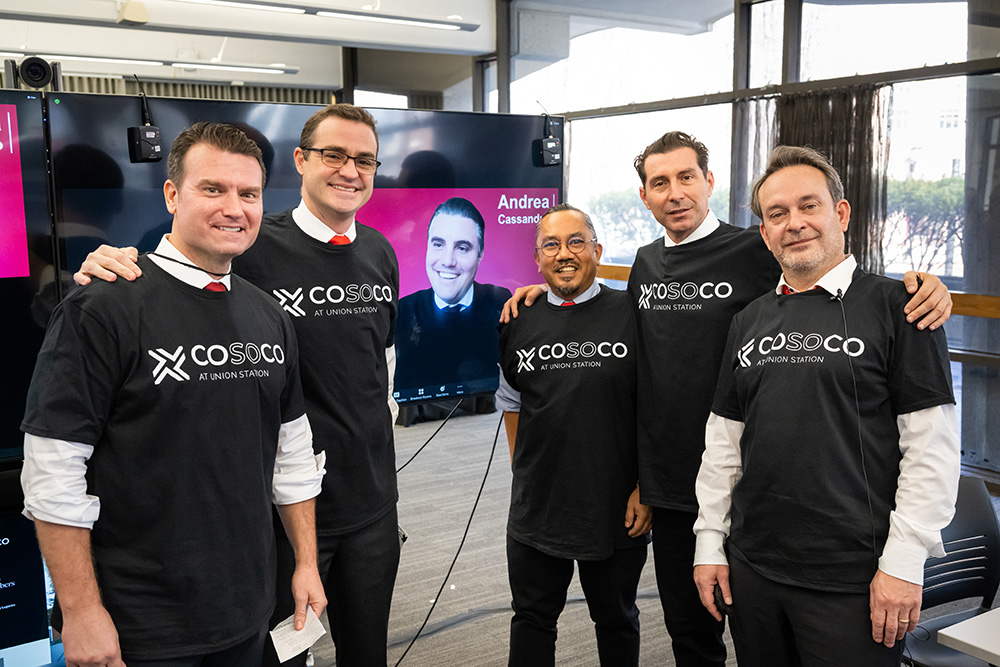
From Master in Real Estate Development to AMDP Advisor: Steve Hutto’s AMDP Journey
Based in Dallas, Texas, Steve Hutto is an alum of the Advanced Management Development Program in Real Estate (AMDP) Class 21 — the AMDP class whose terms overlapped with the peak of the COVID-19 pandemic. Steve was the Class 21 Finance Award winner, voted on by his peers, and is now a financial advisor for teams in the AMDP Team Project. We recently caught up with Steve to discuss his AMDP experience.
Q: You noted that after completing your Master of Science in Real Estate Development (MSRED) at Columbia, you had been thinking about doing the AMDP for ten years. How did you decide it was the “right” time to do the AMDP?
A: Firstly, my enthusiasm for continuously expanding my knowledge of the CRE industry led me to consider further education. When my previous company offered support for continuing education, I explored various programs and found the AMDP to align closely with my interests. However, due to time constraints and limited support, I had to defer applying until circumstances were more favorable. The onset of COVID-19 created a window of opportunity when transactions slowed down, allowing me to focus on pursuing the AMDP. With the support of my employer, who valued higher education, I seized the opportunity to enroll in the program.

Of note: Regarding the differences between the MSRED program at Columbia and the AMDP, Columbia’s program is more technically focused, covering all aspects of real estate development from inception to completion to operating assets, while Harvard’s AMDP program emphasizes strategic decision-making. Participating in both programs has provided me with a comprehensive understanding of real estate, both strategic and technical. While the AMDP requires strong technical skills, it assumes that most experienced participants already possess these skills, focusing more on strategic risk analysis and finding the 4 to 5 most important aspects of an investment while improving leadership skills in the commercial real estate space.
Q: The AMDP is a part-time program that takes place over a year, but there are project commitments during that year. How did you balance the AMDP with the other things in your life during that time?
A: The AMDP’s intensity during on-campus sessions, along with the interaction with real estate and Harvard Business School (HBS) professors, is invaluable. Balancing the program with other commitments, including work and family responsibilities, requires effective project management and coordination with international teammates across different time zones. Despite these challenges, the experience sharpens skills and fosters lasting relationships.

Q: You now serve as an advisor on the ADMP team project. How do you see the role of the project in the overall AMDP experience?
A: Serving as an advisor on the team project for the last several years in the AMDP has given me a new perspective. The complex case studies challenge participants to address various asset types and multifaceted issues, fostering creativity in financing, deal structuring, and market analysis. The result reflects the collective effort and diverse perspectives of the team members.

Many may assume the most outgoing team members’ perspectives dominate the result, yet seeing it from the inside, one realizes how much collaboration shapes the project. Mix the team members up, and the result would be as different as the different team members. In-person collaboration with many participants is still the “magic sauce” for successful outcomes.
The skills acquired from tackling these challenges are applicable beyond the program, proving beneficial in addressing real-world scenarios.
